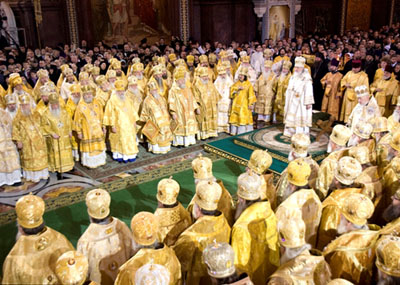Gorbachev’s 1987 perestroika signaled beginning of the end for the USSR. Perestroika means re-building in Russian; it primarily referred to re-structuring of the Soviet economy, although it did lead to significant political changes in the Soviet bloc. It collapsed, erasing one of our two superpowers from the world’s geopolitical map, making for a unipolar and then a multipolar world… and the rest is really poli sci 101.
Twenty-ones years later, Mr. Gorbachev is back proposing a new kind of perestroika: for the US.
America needs perestroika right now. I did a lecture in the US and said the country needs its own perestroika and I got a 10 minute standing ovation,” said the man whose own policies helped trigger the collapse of the Soviet Union. “
(President) Obama’s proposals will be bigger than perestroika. I want to wish success to Obama and his Cabinet, because the problems he has to deal with are not easy ones.
Of course, President Obama is not exactly leading a Communist nation with command economy, but he does need to change, maybe fundamentally, the way economics in the US functions.
Interestingly enough, Gorbachev challenged the communist behemoth and ended up making it capitalist; Barack Obama, president of possibly the most pro-capitalist nation in the world, is perceived as ‘socialist’ by his political foes. He was in fact accused of being a socialist during his campaign. Remember Joe the Plumber’s accusation of Obama being on the ‘slippery Socialist slope’ of trying to ‘spread the wealth’?
Whether it is called socialism, communism, or any other -ism, Obama’s plan to ‘spread the wealth around’ makes sense in this economy. The supposed wonders of free economy led to the worse economic downturn since the Great Depression. What’s worse is its impact on the world; the recession in the US caused a domino effect of national currencies worldwide tanking, trade stalling, consuption fallin, and a myriad other negative effects. At least the USSR’s socialism/communism and its ill economic consequences was limited to only a handful of countries.
As Mr. Gorbachev knows all too well, socialism has many problems. As President Obama is learning, capitalism has serious problems of its own. It seems that what they need is a perestroika of economic theory, not just economic policies.



